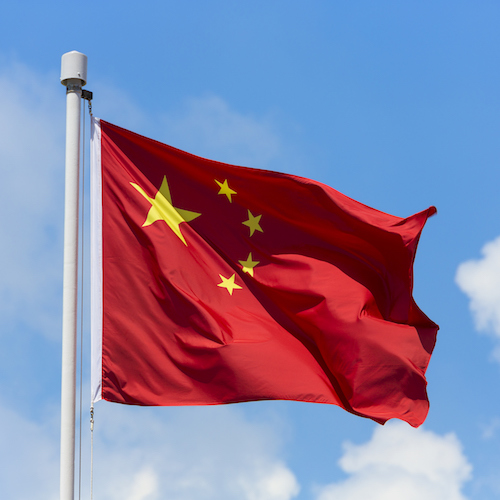Investing
Moody's China Downgrade Is Not Crushing Chinese Shares and Markets

Published:
Last Updated:

The biggest economic and financial market story for Wednesday should be that Moody’s has formally downgraded China’s credit rating. Although this downgrade may sound harsh, the new “stable” outlook seems to mean that the balance of risk and upside are now adequately reflected in the larger global macroeconomic picture. Perhaps the biggest news should really be why Chinese and other markets did not have severe reactions to the downgrade.
At the same time, nations the size of China, the world’s largest economy, historically do not face multiple credit rating downgrades in a short period unless there are major risks. According to other sources, such as Bloomberg and to the Telegraph (U.K.), this was the first time Moody’s has downgraded since China since the late 1980s.
In its report, Moody’s noted that this key downgrade reflects the ratings agency’s expectation that China’s financial strength will erode somewhat over the coming years. The firm also said that China’s economywide debt will continue to rise while potential growth may slow. The ongoing progress on reforms is likely to transform the economy and financial system over time, but the ratings agency believes that it is unlikely to prevent a further material rise in economywide debt.
24/7 Wall St. has decided to look at several of the top Chinese companies, as well as the biggest exchange traded funds and closed-end funds that track the People’s Republic of China.
Alibaba Group Holding Ltd. (NYSE: BABA) was trading down 0.2% at $122.63 on Wednesday. The stock has a market cap of $311 billion and a 52-week trading range of $73.30 to $126.40. Alibaba is the largest e-commerce company in China.
Baidu Inc. (NASDAQ: BIDU) shares were down 0.6% at $190.67, with a 52-week range of $155.28 to $197.80. This company is more or less the premier search engine in China, with a market cap of $66 billion.
China Mobile Ltd. (NYSE: CHL) is one of the largest mobile telecom service providers in China, with a market cap of $226 billion. The stock was trading up 0.1% at $55.70, in a 52-week range of $51.73 to $63.89.
China Unicom (Hong Kong) Ltd. (NYSE: CHU) was actually positive on the day, up 4% at $14.38, with a 52-week range of $9.89 to $14.48. This company is another of the major telecom companies in China, although slightly smaller with a market cap of $35 billion.
Yum China Holdings Inc. (NYSE: YUMC) shares were last seen down 0.3% at $37.63, within a 52-week range of $23.79 to $37.91. The market cap is $14.5 billion. This restaurant company operates all the KFC, Pizza Hut and Taco Bell franchises in the People’s Republic.
China Life Insurance Co. Ltd. (NYSE: LFC) shares were trading at $16.06, with a 52-week range of $10.07 to $16.27. The company has a market cap of $112 billion. As its name implies, this company sells insurance services in China.
China Petroleum & Chemical Corp. (NYSE: SNP) shares were down 0.1% at $81.22, in a 52-week range of $65.46 to $84.88. This energy and chemical company has a market cap of $94 billion.
Momo Inc. (NASDAQ: MOMO) shares were trading down about 3% at $39.88, with a 52-week range of $8.88 to $45.95. The company operates one of the larger social networking sites in the People’s Republic and has a market cap of nearly $8 billion.
iShares China Large-Cap (NYSEMKT: FXI) was trading up 0.2% at $39.66, with a 52-week range of $31.96 to $39.85.
Deutsche X-Trackers Harvest CSI300 CHN A (NYSEMKT: ASHR) traded up 0.3% at $24.84, in a 52-week range of $22.80 to $26.19.
iShares MSCI Hong Kong (NYSEMKT: EWH) was up 0.4% to $23.41, with a 52-week range of $18.50 to $23.52.
SPDR S&P China ETF (NYSEMKT: GXC) was trading up 0.1% at $87.11, with a 52-week range of $65.34 to $87.65.
China Fund Inc. (NYSE: CHN) was down 0.1%, at $17.92 with a 52-week range of $13.60 to $17.99. The company has a total market cap of roughly $282 million.
Morgan Stanley China A Share Fund Inc. (NYSE: CAF) was last seen down 1.2% at $20.58, with a 52-week range of $16.65 to $21.35.
After two decades of reviewing financial products I haven’t seen anything like this. Credit card companies are at war, handing out free rewards and benefits to win the best customers.
A good cash back card can be worth thousands of dollars a year in free money, not to mention other perks like travel, insurance, and access to fancy lounges.
Our top pick today pays up to 5% cash back, a $200 bonus on top, and $0 annual fee. Click here to apply before they stop offering rewards this generous.
Flywheel Publishing has partnered with CardRatings for our coverage of credit card products. Flywheel Publishing and CardRatings may receive a commission from card issuers.
Thank you for reading! Have some feedback for us?
Contact the 24/7 Wall St. editorial team.